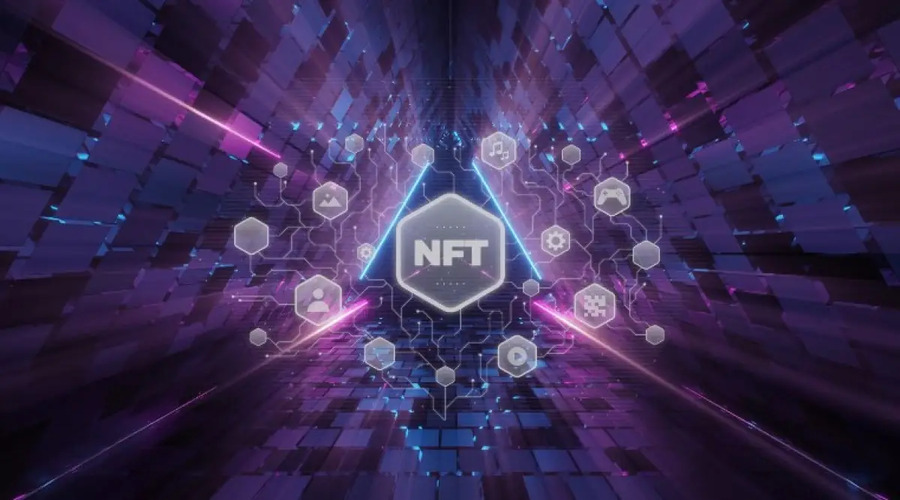The rise of non-fungible tokens (NFTs) has brought about a revolution in the digital art and collectibles space. These unique digital assets have gained significant popularity, attracting both artists and investors from around the world. However, with the growing interest and value of NFTs, the market has become susceptible to manipulation, raising concerns about security and integrity. In this article, we will explore the concept of NFT market manipulation, its implications, and the security risks associated with it.
Introduction
Definition of NFTs
NFTs are cryptographic tokens that represent ownership or proof of authenticity of a unique digital asset, such as artwork, music, videos, or virtual real estate. Unlike cryptocurrencies like Bitcoin or Ethereum, which are fungible and can be exchanged on a like-for-like basis, NFTs are indivisible and have distinct properties that make them one-of-a-kind.
Overview of the NFT Market
The NFT market has experienced tremendous growth in recent years, with high-profile sales and celebrity endorsements grabbing headlines. Digital artists and content creators have found a new medium to monetize their work, while collectors have seen the potential for substantial returns on their investments. However, the increasing value and liquidity of NFTs have also attracted opportunistic individuals seeking to manipulate the market for personal gain.
Understanding NFT Market Manipulation

Types of NFT Market Manipulation
NFT market manipulation can take various forms, often mirroring tactics seen in traditional financial markets. Some common types of manipulation include:
- Pump and dump schemes: Similar to the stock market, pump and dump schemes involve artificially inflating the price of an NFT through coordinated buying, followed by a sudden sell-off to unsuspecting buyers at inflated prices. This creates an illusion of demand and drives up prices, only to leave latecomers holding overpriced assets.
- Fake volume and wash trading: Fake volume refers to the practice of artificially inflating trading volumes to create an illusion of liquidity and demand. Wash trading involves simultaneous buying and selling of the same NFT to create false transaction activity. Both techniques can mislead investors and distort market sentiment.
Consequences of NFT Market Manipulation
Loss of Trust and Credibility
Market manipulation undermines the trust and credibility of the NFT ecosystem. When investors and collectors feel deceived or manipulated, it erodes confidence in the market, leading to reduced participation and potential long-term damage.
Financial Risks for Investors
Unsuspecting investors who fall victim to manipulation schemes face significant financial risks. Purchasing NFTs at artificially inflated prices can result in substantial losses when the market corrects itself or when the manipulators exit their positions.
Negative Impact on the NFT Ecosystem
Market manipulation not only affects individual investors but also has broader implications for the NFT ecosystem. It can deter artists from entering the market and discourage legitimate collectors from participating, stifling innovation and growth.
Security Implications in the NFT Market
Counterfeit NFTs
One of the security risks in the NFT market is the emergence of counterfeit NFTs. Counterfeiters can create replicas or duplicate NFTs, deceiving buyers into purchasing fake or unauthorized digital assets. This undermines the integrity of the market and poses a significant challenge for both collectors and artists.
Hacking and Phishing Attacks
The decentralized nature of blockchain technology, which underlies most NFT transactions, provides robust security. However, hackers can target individuals through phishing attacks, social engineering, or exploiting vulnerabilities in wallets and marketplaces. Malicious actors may attempt to steal private keys or gain unauthorized access to NFTs, posing a risk to investors’ assets.
Smart Contract Vulnerabilities
Smart contracts, which facilitate the creation and execution of NFT transactions, can contain vulnerabilities. If not audited or developed properly, these smart contracts may be exploited by attackers to manipulate or compromise the NFTs associated with them. Such vulnerabilities can result in financial losses or the unauthorized transfer of ownership.
Protecting Against NFT Market Manipulation
Regulatory Measures and Compliance
Regulatory bodies are beginning to address concerns around market manipulation in the NFT space. Implementing regulations and ensuring compliance can help deter manipulative practices and protect investors. Increased transparency, disclosure requirements, and enforcement actions against offenders can contribute to a more secure and trustworthy NFT market.
Enhanced Due Diligence and Research
Investors should conduct thorough due diligence and research before participating in the NFT market. Understanding the background of artists, evaluating the authenticity of NFTs, and analyzing market trends can help identify potential manipulation and make informed investment decisions.
Community-Driven Initiatives
The NFT community plays a crucial role in combating market manipulation. Collaborative efforts to identify and report suspicious activities, sharing best practices, and promoting transparency can create a more resilient ecosystem. Online forums, social media communities, and blockchain analytics platforms can be valuable resources for users to stay informed and connected.
Safeguarding NFT Transactions and Investments
Secure Wallets and Custody Solutions
Protecting NFT assets starts with securing private keys and utilizing trusted wallets. Hardware wallets or secure software wallets that support NFT storage can provide an additional layer of protection. Additionally, custody solutions offered by reputable platforms can offer enhanced security measures and insurance coverage for investors’ assets.
Utilizing Decentralized Marketplaces
Decentralized marketplaces built on blockchain technology can offer increased transparency and security. By eliminating intermediaries and facilitating peer-to-peer transactions, decentralized platforms reduce the risk of manipulation and provide users with direct control over their NFTs.
Practicing Good Cybersecurity Hygiene
Individual users should prioritize cybersecurity practices to safeguard their NFT investments. This includes using strong, unique passwords, enabling two-factor authentication, regularly updating software and firmware, and being cautious of phishing attempts or suspicious links.
Educating NFT Investors and Users
Raising Awareness about Market Manipulation
Educating investors and users about the risks of market manipulation is crucial. By raising awareness about common manipulation tactics, warning signs, and best practices, individuals can make more informed decisions and contribute to a healthier and more secure NFT ecosystem.
Providing Educational Resources
Platforms, communities, and industry experts should provide accessible educational resources to help newcomers navigate the NFT space safely. This can include tutorials on wallet security, guides on verifying the authenticity of NFTs, and explanations of market dynamics and risks.
Promoting Responsible Investing
Promoting responsible investing practices can help mitigate the impact of market manipulation. Encouraging investors to diversify their portfolios, set realistic expectations, and approach NFT investments with a long-term perspective can reduce the susceptibility to manipulative schemes.
Types of NFT Market Manipulation
Pump and Dump Schemes
Pump and dump schemes involve artificially inflating the price of an NFT through coordinated buying, followed by a sudden sell-off. Manipulators often use social media platforms, online communities, or private groups to create hype around a specific NFT. They entice others to buy in, driving up the price. Once the price reaches a certain level, the manipulators sell their holdings, causing a rapid price decline and leaving unsuspecting buyers with overvalued assets.
Fake Volume and Wash Trading
Fake volume refers to the practice of artificially inflating trading volumes to create an illusion of liquidity and demand. Manipulators may employ bots or engage in wash trading, where they simultaneously buy and sell the same NFT to generate false transaction activity. This deceptive tactic aims to attract genuine investors who assume a vibrant market based on high trading volumes. However, it distorts market sentiment and can mislead participants about the true supply and demand dynamics.
Consequences of NFT Market Manipulation
Loss of Trust and Credibility
When market manipulation occurs, trust and credibility suffer. Investors and collectors who fall victim to manipulative schemes lose faith in the market’s integrity. Such incidents can tarnish the reputation of NFTs as a whole and deter potential participants from engaging in the market. Maintaining trust is crucial for the long-term sustainability and growth of the NFT ecosystem.
Financial Risks for Investors
Investors who buy NFTs at inflated prices during manipulation schemes face substantial financial risks. They may experience significant losses when the market corrects itself or when manipulators exit their positions. Buying assets at artificially high prices can lead to substantial devaluations, causing financial hardship for those caught up in the manipulation.
Negative Impact on the NFT Ecosystem
Market manipulation has broader implications for the NFT ecosystem beyond individual investors. It can discourage artists from entering the market, as they may fear their work being devalued or associated with fraudulent practices. Additionally, genuine collectors may hesitate to participate, concerned about the lack of transparency and fair value. Market manipulation hinders innovation and growth by undermining the ecosystem’s attractiveness and stifling genuine market dynamics.
Security Implications in the NFT Market
- Counterfeit NFTs
Counterfeit NFTs pose a significant security risk in the market. Fraudsters may create fake replicas or duplicate existing NFTs, deceiving buyers into purchasing unauthorized or counterfeit digital assets. This undermines the authenticity and value of legitimate NFTs, potentially causing financial losses for collectors and damaging the reputation of artists.
- Hacking and Phishing Attacks
While blockchain technology provides robust security, individual users can still be vulnerable to hacking and phishing attacks. Hackers may attempt to exploit vulnerabilities in wallets, marketplaces, or user devices to gain unauthorized access to NFTs or steal private keys. Phishing attacks, where users are tricked into revealing sensitive information, are also prevalent. Users must remain vigilant and employ strong security practices to protect their NFT assets.
- Smart Contract Vulnerabilities
Smart contracts, the building blocks of NFT transactions, can contain vulnerabilities that malicious actors may exploit. Poorly audited or flawed smart contracts can enable attackers to manipulate or compromise the associated NFTs. This can result in financial losses for investors or unauthorized transfers of ownership. Thorough auditing, code reviews, and security best practices are essential to minimize smart contract vulnerabilities.
Conclusion
In conclusion, the NFT market has witnessed significant growth, attracting attention from artists, collectors, and investors. However, this burgeoning industry is not immune to market manipulation, which can have severe consequences for participants. Understanding the types of manipulation, its impact on trust and security, and implementing protective measures are vital to ensure the long-term sustainability and credibility of the NFT market. By fostering a collaborative and informed ecosystem, we can mitigate risks and foster a secure environment for artists, collectors, and investors alike.


